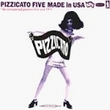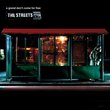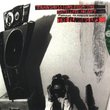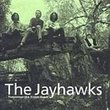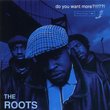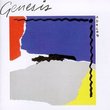| All Artists: Joao Gilberto Title: Besame Mucho Members Wishing: 1 Total Copies: 0 Label: Saludos Amigos Original Release Date: 4/14/2000 Re-Release Date: 4/4/2000 Album Type: Import Genres: International Music, Jazz, Pop, Latin Music Styles: South & Central America, Brazil, Brazilian Jazz, Latin Jazz Number of Discs: 1 SwapaCD Credits: 1 UPCs: 800488216722, 8004883621675 |
Search - Joao Gilberto :: Besame Mucho
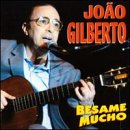 | Joao Gilberto Besame Mucho Genres: International Music, Jazz, Pop, Latin Music
|
Larger Image |
CD DetailsSimilarly Requested CDs
|
CD ReviewsGuys, I was there. pedrinho_eca | Sćo Paulo, SP, Brasil | 01/04/2001 (5 out of 5 stars) "About Besame Mucho (alternative denomination of "Ela é Carioca")I am a lucky guy. São Paulo is one of the cities in Brazil where things happen. João recently announced that is the best place to perform. And I was there, in Tom Brasil (a music hall), absorbing ecstatic his chant, his guitar and his genius.João had lived in Mexico for a while. The CD, recorded in 1970 (Brazil won its third soccer title in that year!), belongs to that phase. It will be very interesting and amazing for people who already know something about the greatest Brazilian musician. If you do not have any idea of how good João is, start buying Stan Getz/João, Eu sei que vou te amar, João, Voz e Violão, Montreux. There is the remarkable danger of being "lost", although I would never classificate this captivating album as a minor work.Let me say something about the tracks. "Besame Mucho", one of the most famous boleros, receives a tender and sweet version. João told us in a recent concert that the composer, Consuelo Velasquez, was a little girl when she wrote it. And so was Lúcio Alves, the auctor of "De conversa em conversa". A very touching story of a couple that is breaking off a marriage (even if you know Portuguese, don't think the lyric is melodramatic or simplistic) written in the 40's. Lúcio was 13. Haroldo Barbosa helped him copying out the verses."Ela é Carioca" was specially composed by Jobim and Vinicius de Moraes for a very bright Brazilian vocal quartet - Os Cariocas. One of the best songs (my personal opinion) of the famous pair who created "Garota de Ipanema", "Brigas nunca mais" and "Chega de Saudade".If you are looking for a collection of Bossa Nova music sung by João, forget this album. There is much music in Spanish (remember that he was in Mexico and its culture is very rich) but I would be a very bad reviewer if not mention "Astronauta". Pingarilho and Marcos Vasconcellos, auctors of the song, showed it to Caetano Veloso, who politely refused it. Some years later, he had the opportunity to listen to it in the voice of his (and our) master João. One of the many lessons he gave and still gives to Brazilian music. And to the music of the whole world."
|

 Track Listings (11) - Disc #1
Track Listings (11) - Disc #1